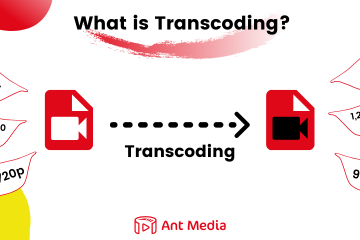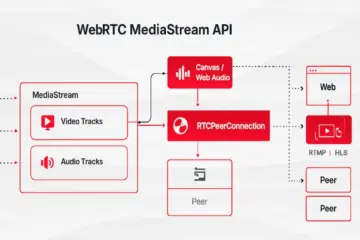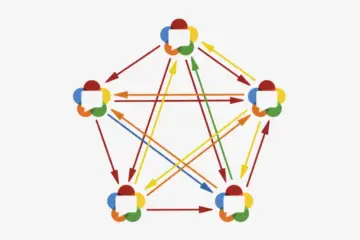Beyond the features that you can benefit from in Ant Media Server v2.7.0 for your premium streaming service, we’re changing one of our approaches and providing an opportunity to make our loverly users turn into our partners.
In this blog post, you will learn about new features for your premium streaming service in Ant Media Server v2.7 and then discover how to become a partner to get 25% revenue share starting this November.
Yes, be part of this journey and make the game win-win. Let’s start!
Table of Contents
What’s new in Ant Media Server v2.7.0
High Audio Quality for Real-Time Music Streaming Services
We cannot think of music streaming without high audio quality. Even if Ant Media Server supports high audio quality in some protocols, now you can enjoy high audio quality in real-time as well.
Furthermore, supporting high audio quality and stereo support is one of the features that most of our lovely users have been asking for for some time and now we’ve started to support this feature in 2.7.0.
Let me provide you with some more information about this feature. The earlier versions of Ant Media Server only supported single-channel (mono audio) streaming, but now you can use multi-channel (stereo) audio streaming.
You can listen to different channels in the same way at the origin of the audio source. Preview this new stereo experience in this sample.
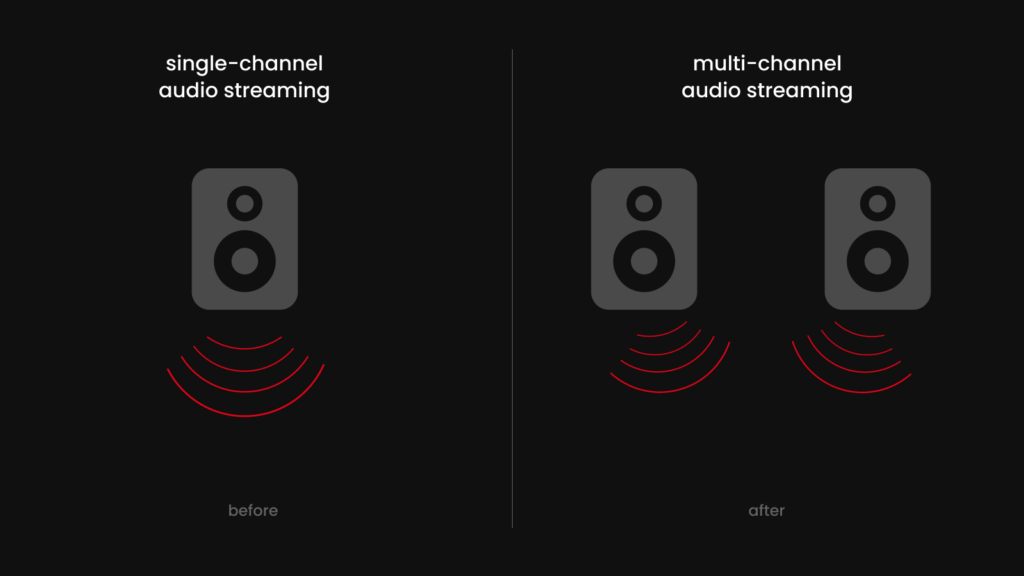
Secondly, in earlier versions, you could only receive streams with a 16 kHz sampling rate. In version 2.7.0, receiving streams up to 48 kHz is now possible to hear high-frequency components in the audio.
Check out this sample to hear high-frequency audio components.
Thirdly, while this feature makes it possible to use Ant Media Server to build your real-time music streaming service, it also has the added value of decreasing CPU consumption; in other words, Ant Media Server provides improved audio quality by using less CPU.
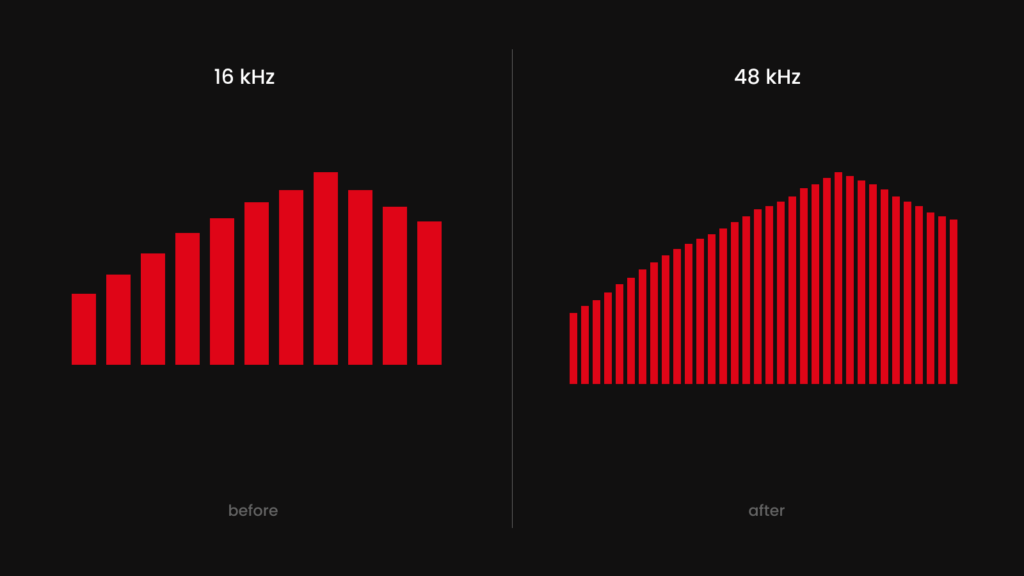
Finally, you don’t need to do anything in 2.7.0 to enable this feature, it is already shipped with high audio quality. Enjoy!
Interactive Streaming with ID3 Tags in HLS
Interactivity is essential in today’s live streaming experiences, and fortunately, by using WebRTC in Ant Media Server it’s very easy to implement using WebRTC video streaming and the WebRTC data channel to create a real-time experience.
However, some of our lovely users require interactivity in low-latency HLS streaming, but this introduces a problem enabling the synchronization of interactivity in low-latency HLS streaming. However, we have resolved this issue by adding timed metadata with ID3 tags.
You can insert any kind of timed metadata, such as overlaying some text or images in specific moments to show comments, emojis, ads, markers, etc.
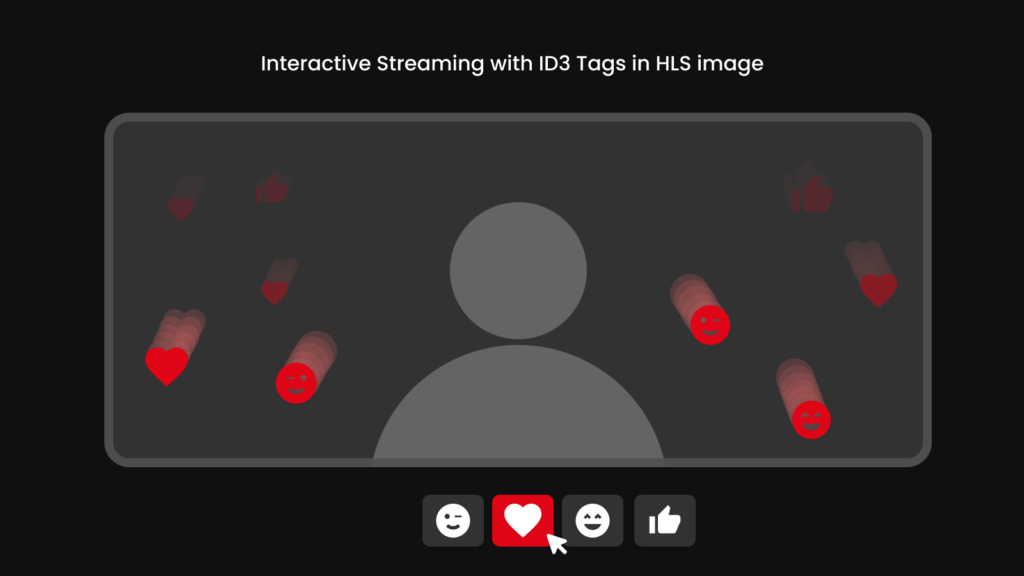
To insert an ID3 tag into any stream, just call the REST method with your metadata and use that metadata in your player.
To use this feature, simply make an API call to this endpoint and parse the ID3 tags using your player API to display the message on th
Ban Subscribers from Streaming on the Fly
Managing subscriber access to publish or play the stream is one of the critical requirements when running a premium streaming service. Furthermore, when users are interacting with each other, it’s also required to block or kick the users from the streaming.
Right now, Ant Media Server supports blocking or banning users based on their subscriber ID from streaming via REST method.
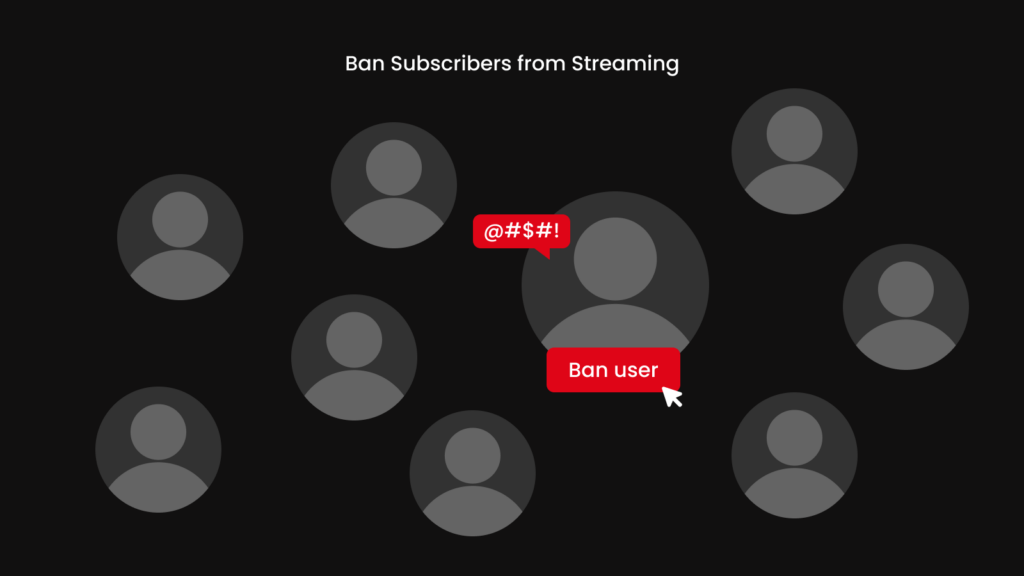
Fortunately, we also make use of this structure very easily without recording subscribers to the Ant Media Server. It’s all about sharing a secret key with Ant Media Server and your application.
Documentation for this feature is going to be available soon but to provide you with a quick overview of how easy it is to block a publisher or player of a stream, all that is necessary is to make a single API request specifying the subscriber ID and whether to ban publish or play methods for the required amount of seconds.
See the video above from our community event that shows this feature in action.
How to upgrade to Ant Media Server v2.7.0?
Take advantage of all these benefits today by upgrading your streaming server:
■ If you use our Community Edition, please download the latest version on Github. You can also dive deep into the changelog there.
■ If you use our Enterprise Edition, get the zip file from the Download section on your account on our website.
When you have the installation file ready, use the instructions from our documentation to upgrade your server.
Be a Partner & Get Your 25% Revenue Share
Last but not least, if you have visited About Us, you’ll see that our purpose is to democratize live streaming and make interactivity mainstream. We’re doing this by creating an ecosystem and partners.
We’re moving one step forward and opening the gates to share revenue. It means turning our current users into our partners to spread the word and win together.

This program is for individuals and companies.
Here are the steps:
- Claim your code through the contact form or contact@antmedia.io
- Make marketing or sell Ant Media Server directly with your code
- Get 25% of the revenue that is generated by using your code
I hope you enjoy the post below, for any queries please reach out to us.
Cheers
